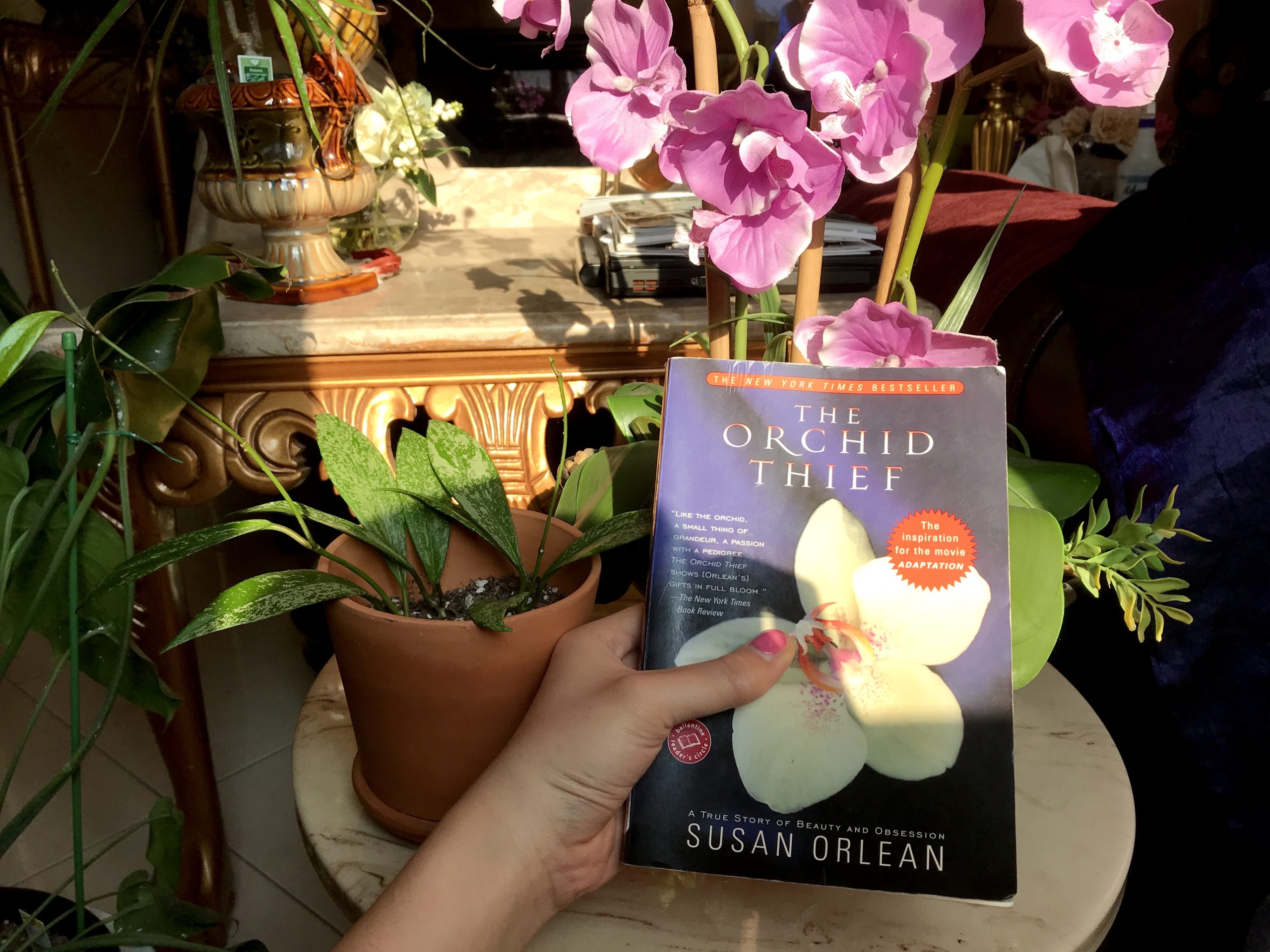Susan Orlean’s The Orchid Thief shines a light on orchid enthusiasts and hustle culture.
Hey, y’all! I’m back, this time with a quick review of Susan Orlean’s The Orchid Thief. Yes, it’s an adult book, but it’s one about plants! I’ve been a fan of Orlean since I picked up The Library Book, a true-crime nonfiction deep dive into the most devastating library fire in American history at the Los Angeles Public Library in 1986. The Orchid Thief is an older book, first published in 1998. Orlean went down to southern Florida to investigate, as the title implies, an orchid theft case.
Plant collector John Laroche and a group of Seminoles had been arrested and tried for poaching ghost orchids from the Fakahatchee Strand Preserve State Park. The ghost orchid, or Dendrophylax lindenii, is a very, very rare epiphyte (meaning it grows on trees). It has reduced stems and leaves with a flower that appears like a white frog. Curt and prone to flights of fancy (though not without his fair share of tragedy), Laroche is a major character, but Orlean takes a deep dive into the wider world of orchid enthusiasts and the drama within the community. (Imagine YouTube beauty tea today and apply it to south Floridian orchid collectors.)
As a plant lover, although not particularly an orchid enthusiast, I enjoyed how Orlean talked to nursery owners and horticulturists throughout the book. One major theme in the book is how passionately people feel about collecting things and how collection becomes a part of their lives and guiding philosophies. And with Laroche’s case, it also becomes about how people grow to capitalize on their interests. The end of the book offers a suiting and somewhat bittersweet message about the thrill of the chase.
Orlean has a gift for language that is both snappy and lyrical. Her style never feels pretentious to read through, and it’s often entertaining. It reminds me of Mary Roach’s, but with the quirk dialed down. Part of the reason why is because she’s quite personable in her writing, although with clear boundaries as “the journalist.” Inevitably, Orlean emerges as the subject of the book, somewhat curmudgeonly and skeptical. Part of me does wish that we got more of Laroche’s story and Laroche’s life. We always go back to him, but Orlean takes detours that can make the narrative feel a tad scattered at times. (Such is life, though, isn’t it?)
Overall, The Orchid Thief emerges as a thought-provoking read, although one that perhaps requires deep enthusiasm for the plant world and a fair amount of concentration.
Published: 1998
